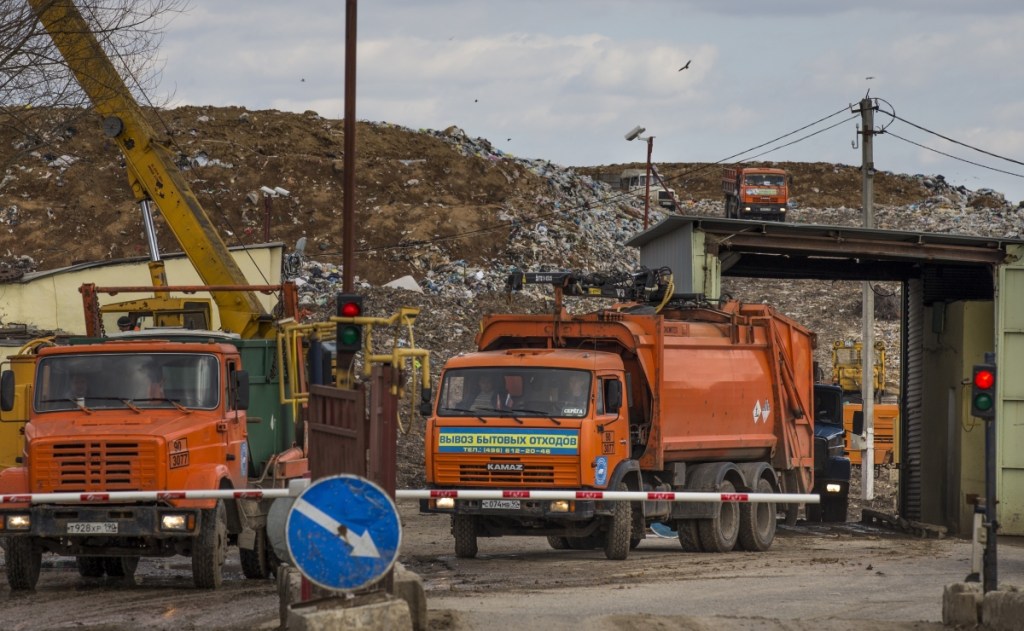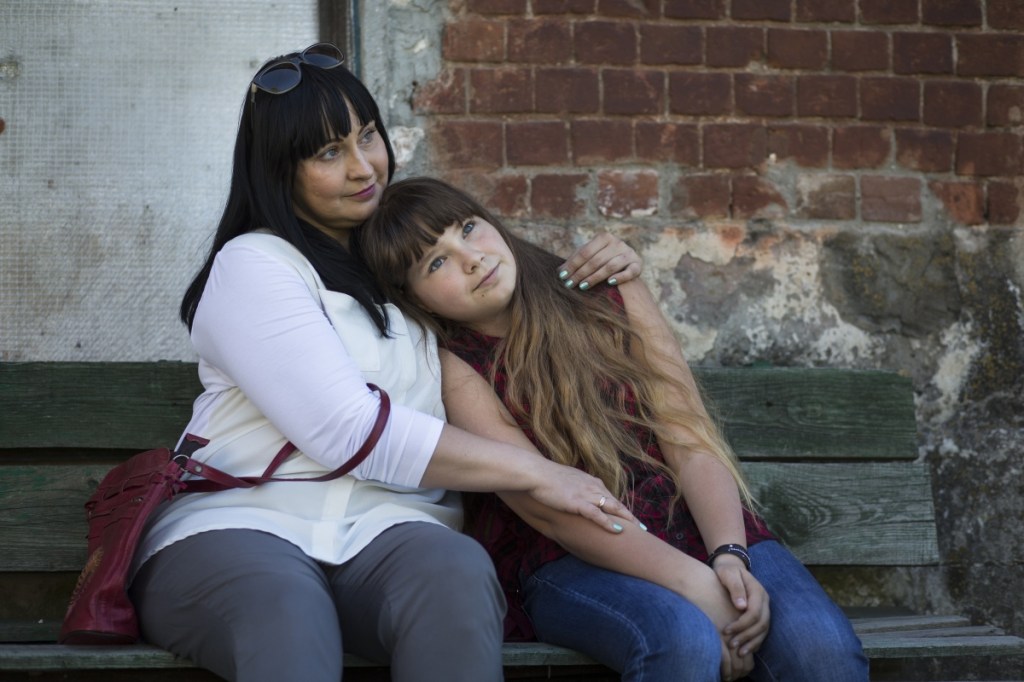KOLOMNA, Russia — Walking to a store in March, Olga Yevseyeva was hit by the familiar, noxious stench of rotten eggs wafting from the town landfill a few miles away. It was a moment that changed her life.
“This smell just made me explode with anger,” she recalled of that spring night in Kolomna, a town about 60 miles southeast of Moscow. “And I realized something had to be done, because you can’t just go on like this.”
Never politically active, the 34-year-old Yevseyeva joined hundreds of other residents who stood in the middle of the road a few weeks later, blocking garbage trucks from delivering more of the waste to the landfill.
Thousands of activists have taken part in such demonstrations in the towns surrounding the Russian capital in recent months, complaining that they are being used as a dumping ground for Moscow’s trash. They say the foul gases from the decomposing landfills have given them and their children respiratory problems, skin rashes and other ailments, and have rendered their homes unlivable and unsellable.
The growing outrage at the shadowy owners of the lucrative waste management companies and government officials who seem indifferent or offer only short-term solutions has driven some to violence: One man charged a garbage truck with an ax, and another opened fire with a gun. Someone even tried to set a landfill on fire.
Yevseyeva and several others were detained for their unsanctioned protest in Kolomna, and she ended up losing her job at the curtains store where she worked.
“I’m in shock about how the authorities operate,” she said. “I thought the authorities should be on the people’s side.”
President Vladimir Putin, at his annual call-in show last summer, got a complaint by residents of Balashikha, another town near Moscow. They said their landfill – the largest in the capital region – was a health hazard. Putin ordered it closed by year’s end.
The trash from Moscow’s nearly 12 million people and the surrounding region, which together account for 20 percent of all the garbage produced in Russia, still had to go somewhere, and waste management companies rushed to find other places to dump it.
One site was near Volokolamsk, a picturesque medieval town of white churches about 68 miles west of Moscow, where the large Yadrovo landfill recently had been privatized.
But as the Yadrovo dump overflowed and the organic waste decayed under the topsoil, a mixture of hydrogen sulfide and methane gases enveloped the town during the winter. Residents inundated Mayor Pyotr Lazarev with complaints of rashes, headaches and coughs. He said he was powerless even to inspect the landfill, adding that regional health officials had assured him there was no risk.
The smell sometimes kept Tatyana Kunyakina awake at night and gave the 27-year-old waitress a cough for two months. On March 20, her 7-year-old son awoke with a fever, cough and red eyes.
The next day, more than 50 children were brought to Volokolamsk’s hospital, with about 20 admitted. An angry crowd formed.
Authorities later declared a temporary state of emergency, saying the landfill was belching alarmingly high levels of hydrogen sulfide. A Dutch company was hired to remove the toxic gases from under the soil.
Regional environmental officials say they are helpless against the private businesses that run the landfills, whose ownership is often murky. Authorities say these operators have powerful patrons who protect them from allegations of mismanagement, or they cannot be closed because of a shortage of dump sites.
Copy the Story LinkSend questions/comments to the editors.




Success. Please wait for the page to reload. If the page does not reload within 5 seconds, please refresh the page.
Enter your email and password to access comments.
Hi, to comment on stories you must . This profile is in addition to your subscription and website login.
Already have a commenting profile? .
Invalid username/password.
Please check your email to confirm and complete your registration.
Only subscribers are eligible to post comments. Please subscribe or login first for digital access. Here’s why.
Use the form below to reset your password. When you've submitted your account email, we will send an email with a reset code.